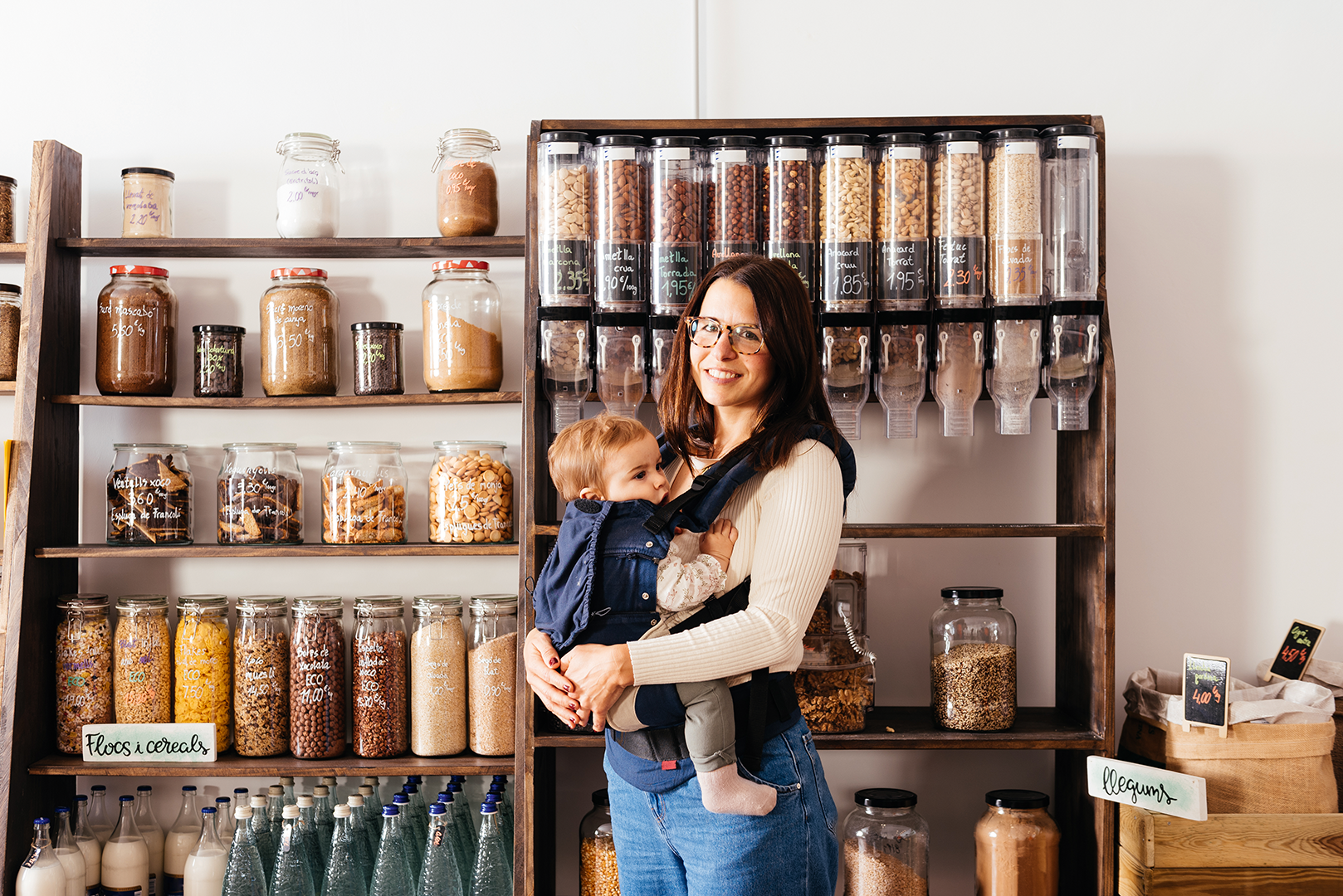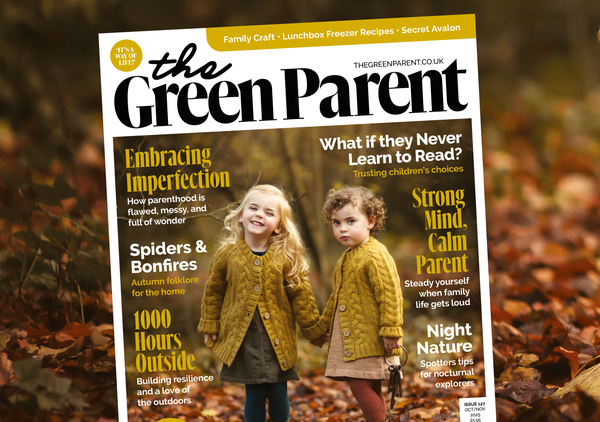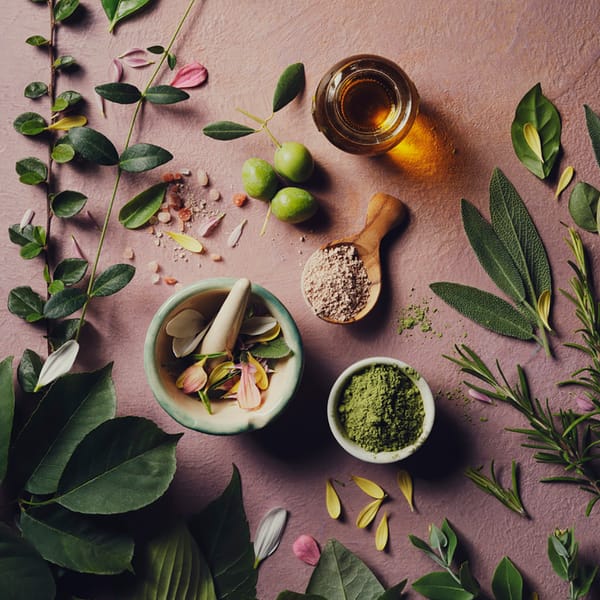In 2022, the owner of Refilled Chichester, Esther and I embarked on a journey to build a community around gut health and saving the planet. We decided to join forces and offer a range of workshops and talks. As I sit and write this, just over two years later, our fermenting and gut microbiome-based workshops overflow onto waiting lists and our wellness community grows daily via our social media channels and newsletter subscribers. Yet despite our growth and relentless drive, Esther is struggling to make ends meet and we don’t seem to be the only earth conscious shop suffering the same fate.
Esther started Refilled six years ago after returning home from travelling around New Zealand with her husband, Harry. ‘Earth conscious stores are everywhere out there. It’s a normal way to shop. When we came back, we were full of inspiration and buzzing to re-create that same warmth and inspiration in our home city, but it isn’t the same here. There are so many barriers for people to overcome. Our little shop has become dependent on a small core of diehard supporters which simply isn’t enough.’
Unfortunately, she’s right. The issues are not just one or two but a melting pot of political, environmental and personal threads that stitch together to form a tapestry of ecological disaster. I’m not entirely sure where to start as there’s so much to unpick but seeing as my passion is diet, perhaps we should begin there. A large proportion of stock in the shop is dried pulses, grains, pasta, lentils, nuts and seeds; all essential ingredients for maintaining healthy and diverse gut microbiomes but they are estranged these days from the average westerner’s diet who no longer possesses the culinary skills needed to prepare and cook them.
Gone are the days when our children stood by our side in the kitchen podding peas fresh from the garden, when we bonded over cooking, spending precious time and energy creating food together. People say they don’t have time to cook from scratch. To my mind there is no more valuable way to spend precious hours with our families than teaching and sharing life skills in a space unhindered by screens.
Food From Scratch
Our gut health workshops were in part inspired by Bessel Van Der Kolk’s book, ‘The Body Keeps the Score’; we wanted to empower children with the confidence and skills to prepare food from scratch in a fun, interactive way. Perhaps if we can upskill and inspire a new generation into cooking again, time will become less of a hurdle.
We look to convenience in the sense of both easy, ready-made food and in the ability to shop for pretty much anything under the same sprawling out-of-town supermarket. Don’t get me wrong, there are definitely times when I’m swayed by their convenience but these huge retailers, despite their big splashy, colourful campaigns make little positive choice for our world. In one breath they offer soft plastic recycling and in another cover every item in several layers of packaging and, although I can opt for loose fruit and vegetables, it seems I can’t purchase both plastic free and organic ingredients at the same time. It’s rarely in their best interest for supermarkets to make such issues obvious, in fact, clever marketing and premeditated wording on strategically placed merchandise provide a calculated emotional barrier between the consumer and the origins of the product.
Whether that refers to the life an animal has led or the environmental cost of transporting unseasonal food from the other side of the world, it’s all too often a story we can choose to ignore. Food is the very building blocks of humanity on both nutritional and social grounding and yet it is something that, in our intentional blindness, we are not challenged to care about.
What is Your Legacy?
Perhaps it comes down to our legacy; who we want to be, what we want to leave behind and how we want to be remembered. Would you rather be known as a nurturer of life and soil or a contributor to the destruction of our ecosystems… a person that thinks beyond the packet or someone that shrugs their guardianship with total disregard… a person who takes their responsibility seriously for the sake of our children or someone who chooses not to look beyond their own future? I know what I want to be and Refilled makes it easy for me. I don’t have to stand for hours reading the backs of packets trying to fathom the difference between one company’s ‘green’ policies compared with another or attempting to work out whether driving all the way across town to a different supermarket who boast slightly better ethics but costs me significantly more emissions is better or worse. Eco shops do all the groundwork for us, carefully researching, sourcing and investing with local choice and environmental sustainability at their very core. All we have to do, as consumers, is make the choice to spend our money with them instead.
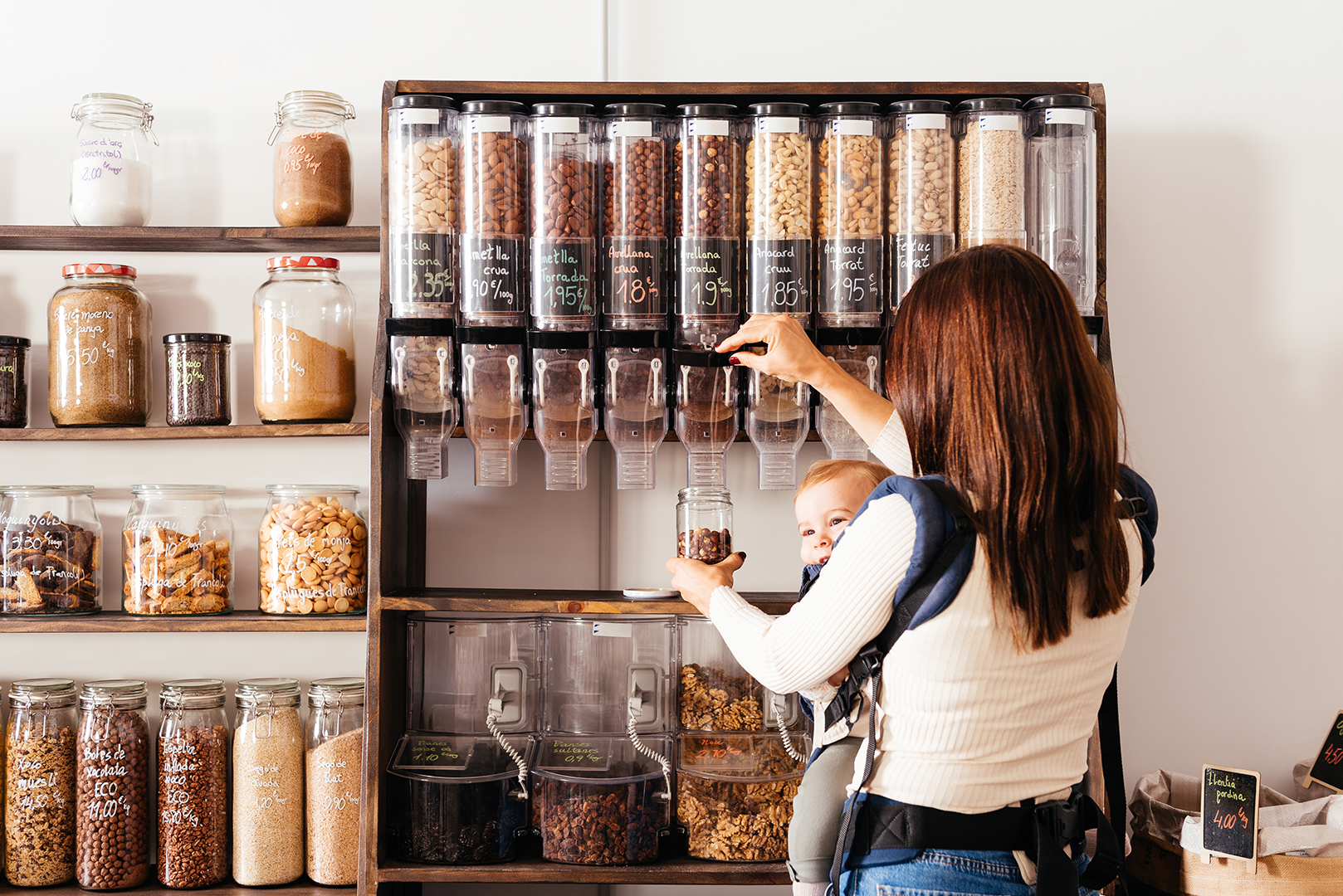
“Eco shops do all the groundwork for us, carefully researching, sourcing and investing with local choice and environmental sustainability at their very core”
And there we have the next hurdle, money. There’s a common misconception that refill shops are expensive but I’m not really sure where that notion came from as, in most cases, prices really aren’t dissimilar to the supermarkets. In fact, by removing the need for packaging and reducing transport costs by using local suppliers, the price considerably decreases and the best thing about refilling our own containers is we can choose exactly how much to buy. Whether we are after small amounts of an ingredient to try out a new recipe or we’re on a tight budget, we can tailor our shopping baskets to suit our exact needs. I wonder if part of the issues around cost, though, is more accurately due to the fact that we are surrounded by unsustainable prices that simply don’t reflect the true price of manufacturing, growing and producing. Grain that’s been planted, (organically) grown and harvested, flour that’s been milled and transported should have a price tag that actually reflects the hard work and energy gone into it. Cost should consider the entire chain of events needed to grow, make or raise a product from start to finish including energy consumption, time, initial investments, transport and staff wages not to mention any natural disasters or adverse weather. Farmers and growers should be our heroes. The food they produce is what enables us to grow, work, exercise, sleep and function with vitality, yet we carry on choosing to ignore the issues because someone’s waving a brighter coloured, cheaper alternative in our faces.
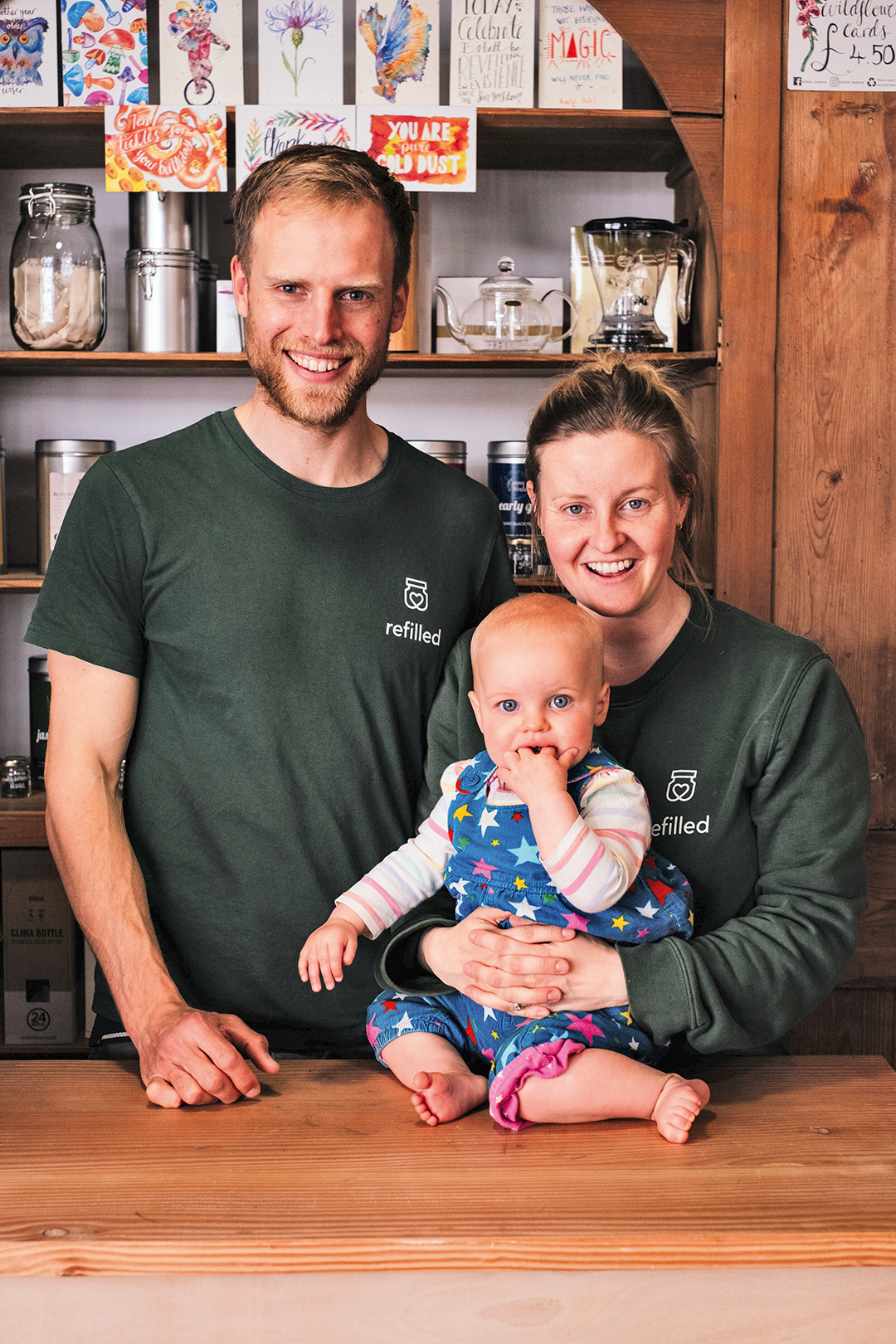
3 ZERO WASTE STORES TO TRY
Brixton Wholefoods:
This independent business in London has been around for over 40 years and offers refill options for washing liquids, loose herbs and spices, and other items. brixtonwholefoods.com
The Refilling Station:
This shop focuses on reducing packaging waste by offering refill stations for various products, and they source locally as much as possible. They have locations in Leeds and Harrogate. refillingstation.co.uk
Refilled:
A wholefoods, cleaning liquids, and fresh produce store on Chichester High Street, that also sells oil and vinegar refills. Bring your own clean glass or plastic containers or use paper bags from the shop. refilledchichester.com
A Healthier Path
One of the most worrying things is that there’s now a proven link between these cheaper, brightly coloured alternatives (or UPF’s as they’ve recently been crowned) with an increased risk of several severe health conditions including cardiovascular disease, Alzheimer’s and some cancers as outlined by Dr Chris Val Tulleken in his brilliant book ‘Ultra Processed People.’ A recent article published by the Guardian discussing the issues of fast-food chains targeting our children, reports that ‘the proliferation of fast food outlets, chain cafes and coffee shops near schools has been so great that one in seven primary or secondary schools in the UK has at least one within 400 metres.’ The impact of this on our children’s mental health, increased levels of obesity and the formation of poor food habits through addiction to chemically enhanced foods is profound but with the knowledge of our ancestors forgotten and a medical profession who’s training doesn’t prioritise nutrition, we are vulnerable.
The saving grace is that we do have the power to change all this, to help our children, to reset ourselves and to walk happier healthier paths. In my experience, lifestyle adjustments such as these are always more permanent and achievable when we’re able to share the experience in a safe, combined, positive community. Community allows us to embrace change, to scaffold and support each other’s vulnerabilities, to encourage each other in maintaining life-transformations until a point where they become normalised. We thrive together and, in a world that threatens collapse through the selfishness of modern-day society, we need community from independent shops and hubs more than ever before.
We can’t enforce revolution on our own, we need to work together to make a difference. We are the change makers.
Harriet is a home educating mum of one who became passionate about gut health after looking at the impact it has on her family.
MORE INSPIRATION
READ Ultra Processed People by Chris van Tulleken
EXPLORE besselvanderkolk.com for more on the link between brain and body
FOLLOW @foraged_hope on Instagram – Harriet’s account


